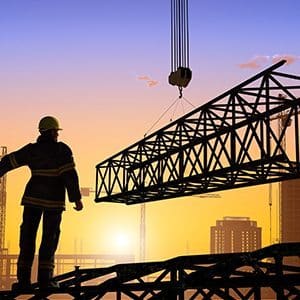This article is brought to you by Banville Law, a crane accident law firm in New York.
Cranes are irrefutably very helpful in the place of work. They can lift huge amounts of weight and even make jobs easier and more efficient. dangerous. It is estimated that there are over 250,000 crane operators, nevertheless, the very power that makes them efficient also makes them extremely dangerous and pose risk to operators and those in and around the crane area.
There are numerous types of cranes, however, the industrial crane is the most powerful and risky type of crane. The majority of crane-related accidents are occurring due to human error, so basic knowledge, hard work, and the right attitude are pretty much the essential tools. If a crane accident will not kill you, it will kill or injure someone else, so the serious nature of adequately preparing yourself cannot be ignored.

Cranes are typically used in construction projects or for loading and unloading goods in factories. However, crane use is not restricted to industries and construction as they are heavily used at seaports. It is important to note that there are various types of cranes for various uses and each has different maintenance requirements.
Cranes are used on daily basis for various purposes, but the likelihood of accidents happening is one unfortunate thing that cannot be avoided. Accidents may occur when the load being carried or some crane part is dropped, causing fatal injuries or even death. In other circumstances, a crane may collapse, fall, or tip-over which can also have disturbing consequences. The slightest negligence of operating a crane can lead to a devastating fall of heavy substances, enormous fire break-outs, and a deadly crane overload. Other than adequate crane safety training, a responsible attitude can go a long way in eradicating the dangers of crane operation.
Usually, crane accidents occur due to various reasons including but not limited to:
It becomes much easier to prevent an accident if you know the actual cause. In July 2010, OSHA (US safety and health administration body) passed new rules and safety regulations for crane operators. One of the most important safety regulations in the lot is that to be a crane operator, one must be fully licensed by a recognized body such as the National Commission for the Certification of Crane Operators (NCCCO). This ensures that all crane operators are familiar with the risks and dangers that come along with their job which helps them to prevent potential accidents.
Crane operations require thorough and careful planning. To ensure crane safety:
A crane accident sounds like one of those of accidents that one does not expect to happen to them if they have no part in construction accidents. However, these accidents can happen and can in turn affect those on construction and those near the crane sites. If you are a victim of a crane-related accident, do contact a personal injury lawyer for legal counsel. Learn more about the dangers of cranes here: https://banvillelaw.com/dangers-cranes/